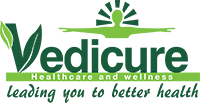What is arthritis?
The swelling and tenderness of your joints are called arthritis. The main symptoms of this include stiffness and joint pain. These symptoms typically worsen with age. Rheumatoid and osteoarthritis and arthritis are the most common types of arthritis.
Osteoarthritis causes the cartilage of the bone to break down. When the immune system attacks the joints, it is called rheumatoid arthritis.
Symptoms
Common signs include –
- Pain
- Stiffness
- Swelling
- Redness
- Decreased range of motion
Causes
There are two main types of arthritis:
- Osteoarthritis and
- Rheumatoid arthritis
They damage the joints in very different ways.
Osteoarthritis
The most common sort of arthritis, osteoarthritis involves wear-and-tear damage to your joint’s cartilage. Cartilage acts as a cushion at the end of the bone and it also allows almost frictionless joint motion. A lot of damage could result in bone grinding directly on the other bone. This causes pain and restriction of movement. The wear and tear occur over a period of time, or it can also often be hastened by an infection or a joint injury.
The whole joint is affected because of osteoarthritis. There are changes caused within the bone. It causes changes within the bones and deterioration of the connective tissues that attach muscle to bone and hold the joint together. It also causes inflammation of the joint lining.
Rheumatoid arthritis
In this kind of arthritis, the body’s system attacks the liner of the joint capsule, a troublesome membrane that encloses all the joint parts. This lining of the bones becomes inflamed and swollen. The disease process can eventually destroy cartilage and bone within the joint.
Risk factors
Risk factors for arthritis include:
- Family history
- Age
- Gender
- Previous joint injury
- Obesity
Complications
Doing daily tasks can get difficult if you have severe arthritis. Particularly, if you have arthritis of the weight-bearing joints, it can keep you from comfortably walking or sitting up straight. In some cases, joints may become twisted and deformed.
Horizon Prime’s Dr Karthik Subrahmanian is the best arthritis doctor in Mumbai. Horizon’s Knee Clinic offers comprehensive knee treatment that provides the best possible care to all our patients.

